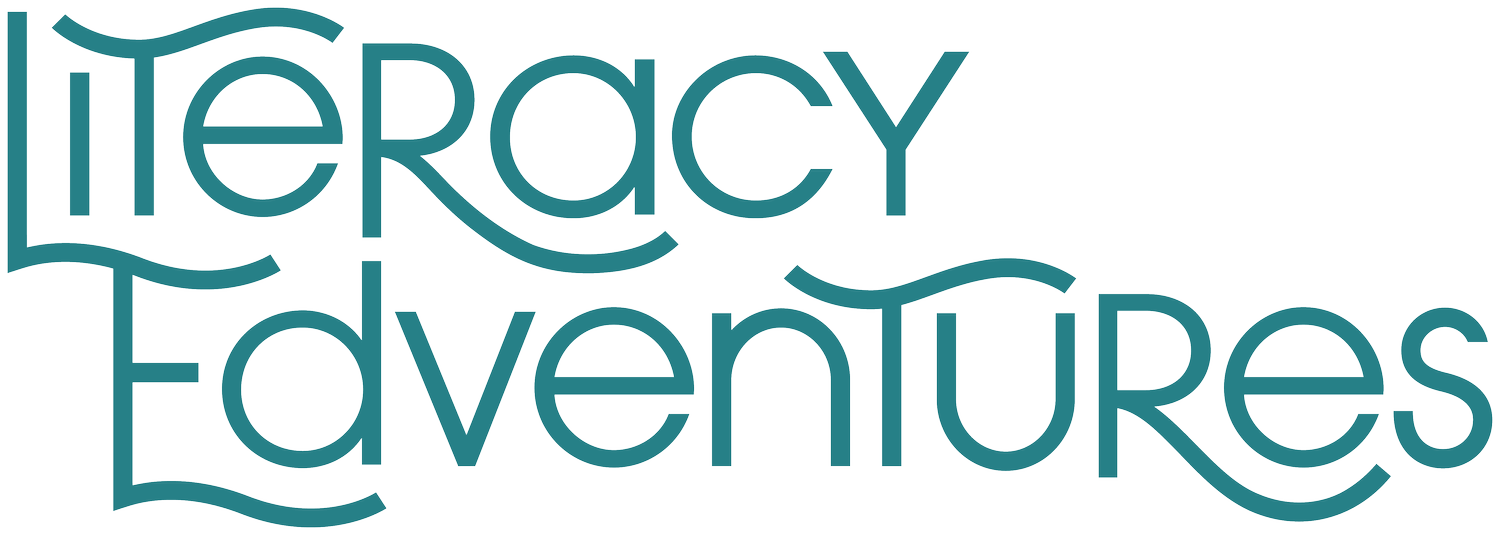Episode 3: Phonological Awareness
Meet Kristina Harrill - founder and author of Sweet for Kindergarten, a Teachers Pay Teachers store and blog where you can find her hard at work giving tips on how to simplify phonics instruction without sacrificing engagement and effectiveness.
Check her out!:
Sweet for Kindergarten Website
Sweet for Kindergarten Instagram @sweetforkindergarten
Before we get started, Did you miss signing up for my podcast email sequence? When you opt-in, you get an email each day a podcast is released, plus a portion of an intervention e-book that corresponds to and compliments each podcast’s subject.
Kristina’s 5 Fun and Engaging Ways to Incorporate Phonological Awareness into the Classroom
#1: Syllable Smash
Focus: Counting and segmenting syllables in a word
Materials: Playdough
Play:
Students roll 3-4 balls of playdough.
Teacher says a word: “Microphone.”
For each syllable they hear, students press down a playdough ball. “Mi / cro / phone.”
When finished, students show the number of syllables with their fingers.
Best played:
Small group lessons
Modeled in large groups
As literacy center with picture queues
#2: Movement with Syllables & Rhymes
Focus: Counting syllables
Materials: Counting syllables visual and picture cards (needs attachment)
Play:
Students pick a picture card that decides how the syllables will be counted (hop, robot voice, etc.)
Teacher says a word: “Doorknob.”
Students hop (or whatever the picture card suggests) out the syllables: “door” (hop) “knob!” (hop)
Best Played:
Small group lessons
Modeled in large groups
Transition times and lining up
Focus: Recognizing rhymes
Materials: Nothing!
Play:
Teacher says: “Cat / hat.”
Students can use movement and respond to the rhyme by:
Thumbs up / thumbs down
Jumping / squatting
Spinning / stomping
#3: Hot Potato Game
Focus: Finding rhyming words
Materials: Shoe box or bin containing random items with short vowels (cat, dog, lid, mug, etc.) If you don’t have items on hand, CVC picture cards can also do the trick.
Play:
Have students sit in a circle with one student holding the basket.
Teacher plays the music while kids pass around the basket.
When the music stops, whoever has a basket pulls out an item and says a word that rhymes with that item. Example: “Cat / bat.”
For an added challenge, the student to the left of the basket holder can think of another rhyming word. Continue going around the circle until the students run out of rhyming words (cat / bat / mat / sat, etc.).
Pro tip: consider putting a lid on the box to minimize distraction and time spent choosing each item!
#4: White Board Magnets Activity (perfect for future writers!)
Focus: Segmenting sentences
Materials: A handful of magnets and a magnetic whiteboard.
Play:
Place all of the magnets at the bottom of the whiteboard.
The teacher says a sentence: “The cat runs to the house.”
Students repeat the sentence.
Together, segment the sentence by moving one magnet up on the whiteboard as you say each word until the sentence is finished.
Then, count the number of magnets that were moved up. Students can also count the number of words on their fingers for added practice.
#4: Scavenger Hunt
Focus: Counting and sorting syllables; fine motor skills
Materials: Old magazines and a piece of paper for each student that has numbers 1-4 on it.
Play:
Each student has a magazine and a piece of paper with 1-4 on it.
Students cut out a handful of pictures from the magazine.
Once the pictures are cut out, students will then sort the pictures into however many syllables they have.
For example, if a student cuts out a picture of a reindeer, he or she will place it in the “two syllable” pile.
Students continue to sort their pictures into the appropriate syllable pile.
Additional Resources & References:
Emergent Phonological Awareness Bundle
References:
5 Tips for Teaching Phonological Awareness
**Don’t want to miss another podcast? Sign up for my email sequence and opt-in to receive an email each day a podcast is released, plus a portion of an intervention e-book that corresponds to the day’s podcast.**

